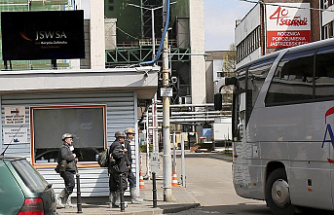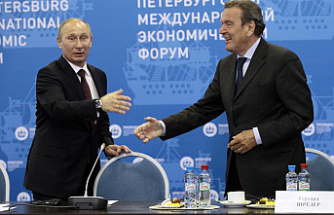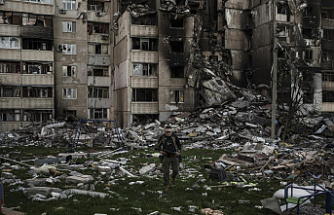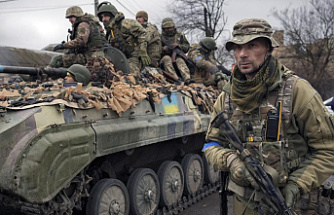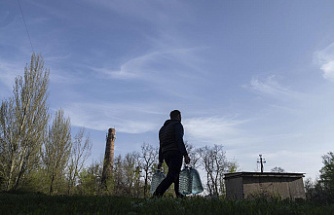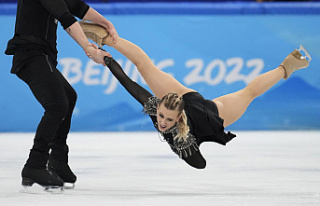Dmytro Kuleba, the Foreign Minister, stated that Russia had not responded to formal requests for explanations regarding the building-up of troops.
He stated that the "next steps" were to request a meeting within 48 hours for "transparency." about Russia's plans.
Despite the presence of around 100,000 soldiers at Ukraine's borders, Russia denies any plans to invade Ukraine.
However, some Western countries have warned Russia that it is planning for military action. The US has stated that they could launch aerial bombardments at any moment.
Over a dozen countries have called on their citizens to flee Ukraine. Some have also pulled diplomats from the capital. According to CBS News, the US plans to pull all of its personnel out of Kiev in the next 48 hours. This was cited by three sources.
According to Mr Kuleba, Ukraine demanded Russian answers Friday under the Vienna Document rules, which is an agreement on security issues that was adopted by members of the Organisation for Security and Cooperation in Europe, Russia included.
He stated that Russia must be serious about addressing the indivisibility security in the OSCE area if it is to be taken seriously.
Volodymyr Zelensky of Ukraine, however, criticized the "panic" that could result from such claims and said that he had not seen any evidence that Russia planned an invasion in the next days.
He spoke almost an hour with US President Joe Biden by telephone on Sunday. According to the White House, President Biden reiterated US support for Ukraine and that they had reached an agreement on "the importance and necessity of continuing to pursue diplomacy & deterrence".
According to Ukraine's statement, the call was recorded and stated that the president of Ukraine thanked the US for their "unwavering support". At the end, President Zelensky invited US leader to visit Ukraine. The White House has not commented on the invitation.
A long hour-long phone call between President Biden, Vladimir Putin and the Russian leader failed to produce a breakthrough.
Diplomatic efforts will continue through Monday. German Chancellor Olaf Scholz will meet with President Zelensky, Kyiv on Monday, and President Putin, Moscow on Tuesday.
The chancellor of Germany, Angela Merkel's successor, has warned that Russia could face severe economic consequences if it launches an invasion. This echos statements made by other Western countries and members of NATO.
Berlin officials however have downplayed any hope of a breakthrough.
Boris Johnson, the UK Prime Minister, plans to continue diplomatic talks with Europe in an effort to "bring Russia back from the brink of war."
Vadym Prystaiko, Ukraine's ambassador to Britain, was furious at Johnson's comments on Sunday.
In an interview with Sunday Times UK, Ben Wallace made a comparison between the current situation and the appeasement by Nazi Germany during World War Two.
The BBC's Broadcasting House radio program heard Mr Prystaiko respond by saying that it was not the best time to offend our international partners. He reminded them about the act which did not bring peace, but rather the opposite: it bought war.
Later, Mr. Prystaiko admitted to BBC that his country might be forced to abandon any ambitions to join NATO if "threatened...and pushed to it".
Russia demands that Ukraine, which is not a member of NATO at the moment, be denied membership.
NATO and Western nations insist that sovereign states such as Ukraine can decide for themselves. This includes applying for membership to the security alliance. The alliance was formed partly as a countermeasure to the Soviet Union after World War Two.
Russia claims that the buildup of troops at Ukraine's border is a matter of its own concern. Senior foreign policy official Yuri Ushakov described the US warnings about imminent invasion as "hysteria at its peak".


